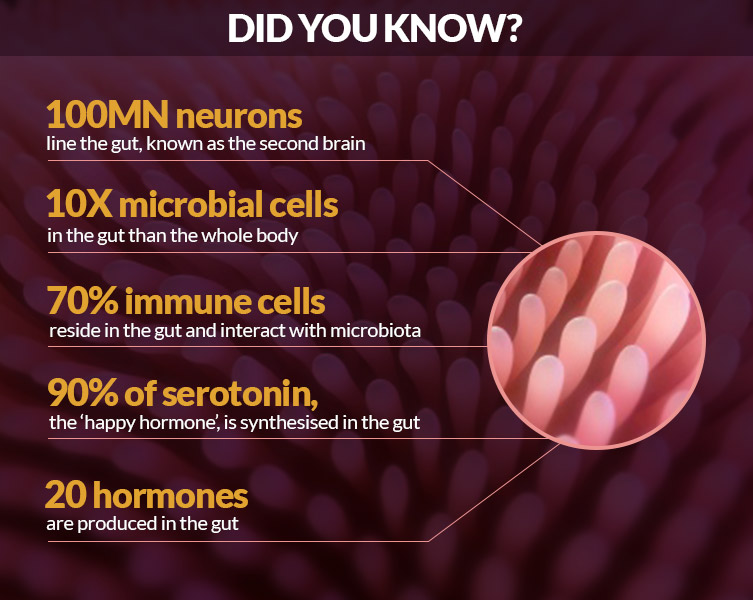December 2020 | 1476 words | 6-minute read
Increase in lifestyle diseases and growing consumer awareness of wellness had already given the nutraceutical sector across the world a boost in recent years. And then 2020 happened.
It brought a dramatic surge to the sector due to the Covid-19 pandemic and the resultant uptick in the consumers’ desire to build immunity. Thanks to its timely digital forays into product innovation, Tata NQ, the nutraceutical business of Tata Chemicals, was well-poised to build on this with agility.
How the journey began
“Differentiation in our products comes from the strong science on which they are built; products from the nutritional business are no exception,” says KR Venkatadri, chief operations officer, Nutrition Science, Tata Chemicals. Mr Venkatadri, who was earlier the chief innovation and digital officer at Tata Chemicals, adds, “We knew that our prebiotics — FOSSENCE (fructo oligosaccharide or FOS) and GOSSENSE (galacto oligosaccharide or GOS) — impact health through the gut microbiome. The mode of action is what we wanted to learn. This initiated our study of microbiome, big data and mining of the data.”
Microbiome is the scientific name for the complete set of micro-organisms — trillions of them — living in our bodies. And the gut, also known as the second brain, is home to 10 times the microbial cells than the whole body. Prebiotics act as food for the good bacteria in the gut and reduce the pathogenic or bad bacteria. In early 2015, Tata NQ began looking to further their knowledge of Indian gut microbiome.

“While the United States and some European countries had commissioned a few studies at that time, no large-scale mapping study had been done here,” says Rahul Gupta, business head, Nutritional Solutions, Tata Chemicals. “We were the first to conduct a large-scale pan-India microbiome study.
Working with big data tools developed by Tata Consultancy Services (TCS) to tackle the massive amount of data generated by the billions of unique micro-organisms in the gut, Tata Chemicals began to gain understanding of the microbiome in relation to unique Indian parameters. They also completed one of the longest prebiotic intervention studies in the world to understand how FOS works on the microbiome.
“The realisation came that if we want to build the next generation of product line, it is of utmost importance to understand how these products work, what are the health benefits and how they are delivered,” says Dr Anirban Bhaduri, senior scientist, Tata Chemicals. “We had to use big data concepts for any form of understanding and to find uniqueness and trends that we could translate to our products.”
So, in 2017, Tata Chemicals formed its own data analytics and bio-informatics team at the Innovation Centre in Pune to build proprietary platforms to connect nutrition, microbiome and host wellness.
What we built
“Being a new field, most of the common big-data analytics methods cannot be applied to it. It required customised development,” says Mr Venkatadri. “We saw this as an opportunity and developed proprietary analytics methods that have enabled us to draw new insights.”
Eight patent applications have come out of this, providing a competitive edge to Tata NQ in identifying new business opportunities, reducing product development time and time to market, controlling development costs, and aiding process optimisation and product positioning.

Tata Chemicals, in many ways, is playing a pioneering role in this space, especially in India. Dr Bhaduri explains, “There are a few MNCs working on it, but we are doing it differently. Ours is a predictive approach where we guide the innovation. For example, when some Western companies launched gut health products in India, the efficacies that were high in the European market couldn’t be replicated. The composition of the Indian gut is different. We, on the other hand, had data to model the efficacy of different products for different subjects.
“We have built one of the biggest global knowledge bases on gut microbiome, mapping subjects across geographies, age groups, genders, sedentary habits and other parameters. This helps us ask questions like what kind of ingredients act best in which geographies and which age groups. These are scientific questions, but they give us insight into the business in terms of areas that can be developed, market potential and product positioning. This is critical because what matters in the end is the claim that you have on the product, which is a direct link to your brand. If you can’t support your claim, you will face challenges.”
What this means for business
Acceptance of in-silico methods for new product development (NPD) in the nutritional business is growing globally. They not only cut down the uncertainty involved in jumping into a clinical study too early but also require lesser investment and time.
In the case of FOS — one of Tata NQ’s flagship products — what was known initially was that it was a basic prebiotic for gut health. Since it had a sweetness with zero glycemic index, it could also be considered as a sugar replacement. The in-silico methods developed at Tata NQ spotlighted other use cases. FOS’s impact in the biosynthesis of vitamin D3 meant it had potential in the vitamin market. The fact that it could modulate a specific set of bacteria meant it could help improve immunity. It also revealed the predominance of Prevotella copri in the Indian gut, a micro-organism that is not as prevalent in the western gut.

“Its role in arthritis is well-noted,” says Mr Gupta. “The insight allowed us to look at formulation possibilities like FOS-Green Tea Complex. We recently filed a patent on this complex, and it is in early stage of product development.”
Insights like these are helping Tata NQ grow its prebiotics business. Revenue from FOS, which is now being manufactured at the company’s state-of-the-art greenfield facility in Andhra Pradesh, grew by 59% to Rs 65.15 crore in FY20. The product also saw a widening customer base globally. While the Covid-19 pandemic is likely to defer new product introduction in its other businesses in FY21, Tata Chemicals is expecting growth opportunities from the nutraceuticals business.
In addition, Dr Bhaduri says, “Apart from product development and business development, this knowledge base also helps with the regulatory aspects of NPD as it can flag off potential concerns.”
What it means for you
For the scientists at the Tata Chemicals’ Innovation Centre in Pune — where insights from the microbiome data are being developed into solutions — this credibility and what it means for the end consumer are key motivators. Dr Bhaduri says, “At the end of the day, customer centricity is important. What we are trying to achieve from all this is the assurance that what we claim on our products is what the end consumer gets.”
Tata NQ’s FOS, a B2B product, reaches consumers through bakery snacks, beverages, nutri bars, cereals, confectionaries, dairy and health supplements. The company’s machine learning and bio computing tools allow it to provide better understanding of biological, geographical, cultural and other factors that can be taken into account by its customers to determine the right food design for a cluster segment.
“If such analytics tools have consumer interactions or interfaces, it puts the power in the hands of the consumer to gain more understanding and design their own nutrition choices,” Mr Gupta points out, drawing attention to the next phase of the journey.
The proprietary microbiome analytics platform is the foundation on which Tata NQ is building its response to the growing consumer preference for hyper-personalisation.
Mr Gupta says, “We are developing a platform called vGUT to provide personalised nutrition and wellness information. It is powered by machine-learning algorithms. The base data set is a combination of what’s in the public domain and the data from our in-house clinical studies. It allows users to feed in their microbiome data and receive personalised recommendations of types of foods/ingredients to take and to avoid. The prototype has been built; we are at an early pilot stage to validate the system.”
This platform can be used by the industry to develop custom nutrition products targeting a segment and be mimicked for data sets beyond microbiome. Scientists at Tata NQ have already begun to explore opportunities in personalised skin care and personalised medicine.
Mr Venkatadri says, “The unique microbiome technology developed at the Innovation Centre can also be leveraged beyond Tata Chemicals by companies like Tata Consumers Products Ltd, Inzpera, Tata Medical, etc.”
He adds, “With Covid, the need for addressing immunity-related aspects and the focus on health has increased tremendously. We are working to leverage this business requirement. We would like to leverage digital and analytics interventions at every stage of product development. We are reimagining the business model, and it is transformative.”
—Monali Sarkar and Munira Patel













